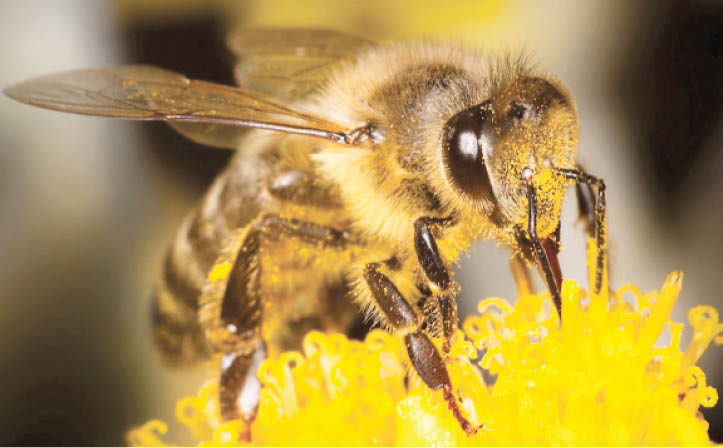Researchers at the Catholic University of Daegu in South Korea have discovered that bee venom could help millions of eczema sufferers beat the condition.
Eczema is an inflammatory condition of the skin that leads to redness, blistering, oozing, scaling and thickening.
It usually appears in the first few months of life and affects around 10 per cent of babies.
Eczema is the most common allergic inflammatory skin condition and its root cause has mystified dermatologists for decades.
The researchers found that a protein called melittin which is abundant in bee’s poison reduces inflammation which is the driver of red, cracked and itchy skin.
Laboratory tests on mice and human cells revealed that melittin relieves eczema by boosting vital immune cells that defend the body, called T cells.
The researchers believe that the protein could be added in creams in the future to relieve the painful symptoms of the disease.
The Catholic University of Daegu is the fourth largest city in the Asian country.
Scientific advances in recent years have led to scientists floating the ideas of an eventual eczema cure – but it remains incurable.
Anti-inflammatory steroid creams are the most common therapy used to treat Eczema but they can cause side effects.
The new study, published in the British Journal of Pharmacology, could change that and lead to a better cream with less side effects.
“This study demonstrated bee venom and melittin have immune-modulatory activity. Such activity was associated with the regulation of T helper cell differentiation, thereby ameliorating eczema,” said Dr Hyun-Jin An who led the researchers in the study.
“These results suggest bee venom and melittin would be suitable for skin application, as topical administration is often applicable for the treatment of eczema,” Dr An said.
Bee venom, full of various peptides, has also been found to possess anti-bacterial, anti-viral and even anti-cancer properties, while melittin – which makes up half of it – has pain-relief effects and has been proven to offer relief for arthritis patients in lab trials.
The new study follows a major breakthrough in eczema research last year when a potential cause of the condition was discovered, reports MailOnline. Newcastle University experts also discovered that sufferers are missing a vital protein called filaggrin in their skin, it said.
“This then drives the development of the debilitating condition, they wrote at the time in the Journal of Allergy and Clinical Immunology.”
According to the British Skin Foundation, eczema sufferers may suffer from insomnia and irritability aside the skin being affected. The disease may be genetic due to the condition often running in families.
The foundation said many factors can make eczema worse. They include:
- Heat, dust, soap and detergents
- Being unwell, such as having a cold
- Infections
- Dry skin
- Stress
The foundation advised patients to avoid known triggers for flare ups and use emollients.




